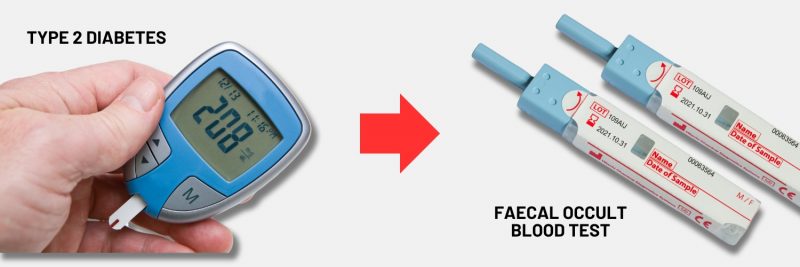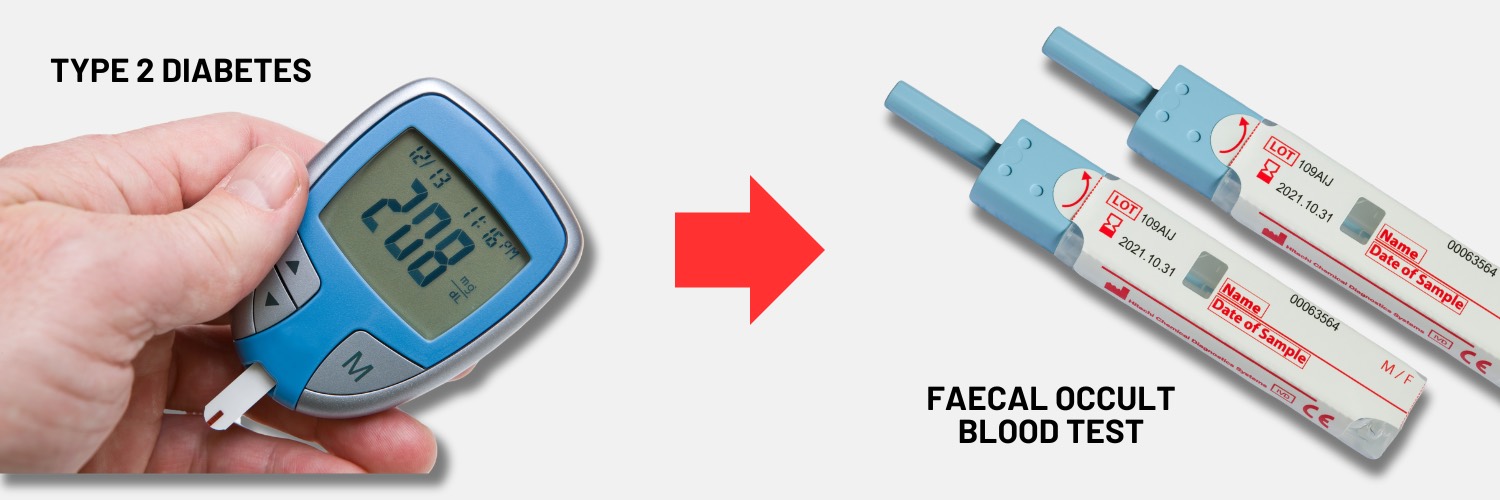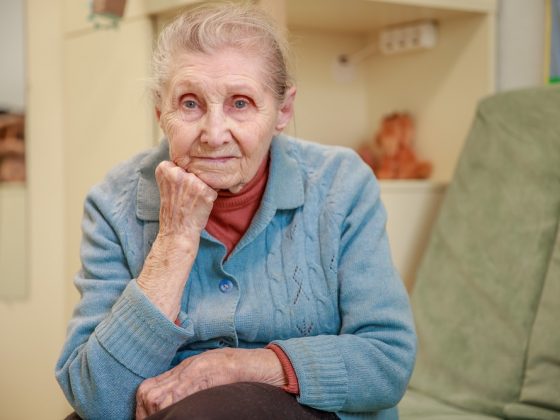People with type 2 diabetes have a 47% increased risk of developing colorectal cancer (CRC) in comparison to people without diabetes. The cohort study, published in Jama Network Open, 15 November, suggests that regular CRC screening should become integral to healthcare provision for patients with type 2 diabetes.
“Increased interactions with the healthcare system following a diabetes diagnosis, including increased referrals to CRC screening, may be important for mitigating the harm of diabetes related metabolic dysfunction, particularly in early diabetes on CRC risk,” write the authors Shaneda Warren Andersen, and colleagues, from the University of Wisconsin Madison and Vanderbilt University School of Medicine, Nashville, Tennessee.
Epidemiological studies have indicated a link between type 2 diabetes and increased risk of CRC. The association can be explained by biological mechanisms including hyperglycaemia and hyperinsulinemia. Hyperglycaemia, it is suggested, may support tumorigenesis via provision of additional glucose required to support cell proliferation, while hyperinsulinemia may increase CRC risk by facilitating glucose uptake in tumour cells and by interacting with insulin receptors to activate proliferative signalling pathways.
The current study aimed to explore associations between diabetes and CRC and to evaluate how risk factors, participation in CRC screening programmes, and duration of diabetes might modify the effects. The analysis used data from the Southern Community Cohort Study (SCCS), which was established to investigate cancer-related health disparities, with a particular focus on low-income and African American participants, groups who have been traditionally underrepresented in prospective epidemiological studies. Between 2002 and 2009, the SCCS recruited 54,597 people from 12 southeastern states in the US. Participants completed questionnaires concerning demographics, medical history (including self-reported physician’s diagnosis of diabetes), family history of disease, diet, and physical activity. The diagnosis of CRC was identified via state cancer registries and the National Death Index.
Results showed that among 54,597 participants the median age at enrolment was 51 years, 34,786 (64%) were female, 36,170 (66%) were African American, and 28,792 (53%) had an income of less than $15,000 per year.
In total, 289 out of 25,992 participants with diabetes developed CRC compared to 197 out of 28,605 participants without diabetes (HR=1.47, 95%CI 1.21–1.79).
Greater associations were observed among participants who had been diagnosed with diabetes within the last five years in comparison to those who had been diagnosed between five and 10 years ago (HR=2.55; 95%CI 1.77–3.67).
Greater associations were also observed among participants who had not undergone colonoscopy screening (HR=2.07, 95%CI 1.16–3.67) and those with a history of smoking (HR=1.62, 95%CI 1.21–1.79).
The study did not show any effect modification between diabetes and CRC risk according to race and ethnicity, gender, obesity, or income levels.
“Associations are greatest for the subgroups of participants with recent diabetes diagnosis and those without recent colonoscopy, highlighting the importance of CRC screening as a potential disruptor of the adverse outcomes of metabolic dysregulation to increase CRC,” write the authors.
The finding that shorter durations of diabetes are associated with elevated CRC risk, write the authors, may be partially attributable to the increased interactions with the healthcare system that occur immediately after diagnosis, allowing for cancer screening opportunities. “It’s almost hopeful that if diabetes does increase colorectal cancer, if someone is undergoing routine surveillance or screening they can still reduce their risk,” says Warren Andersen.
Current US guidelines suggest most people should begin CRC screenings at age 45; the national take-up rate in 2021 was reported to be just under 60%. In Europe, by contrast, screening guidelines for CRC recommend a starting age of 50, and the take-up is lower than in the US, with wide variations across member states. Almost 50% of people aged 50 to 74 years self-report never having undergone any form of CRC screening, ranging from 94% in Bulgaria to 17.4% in Denmark.












